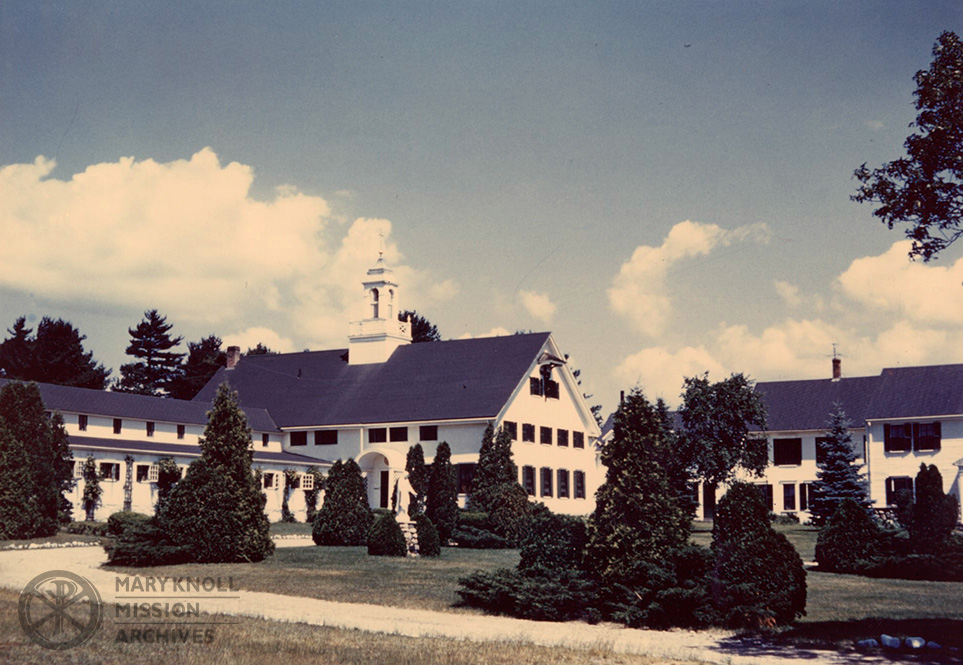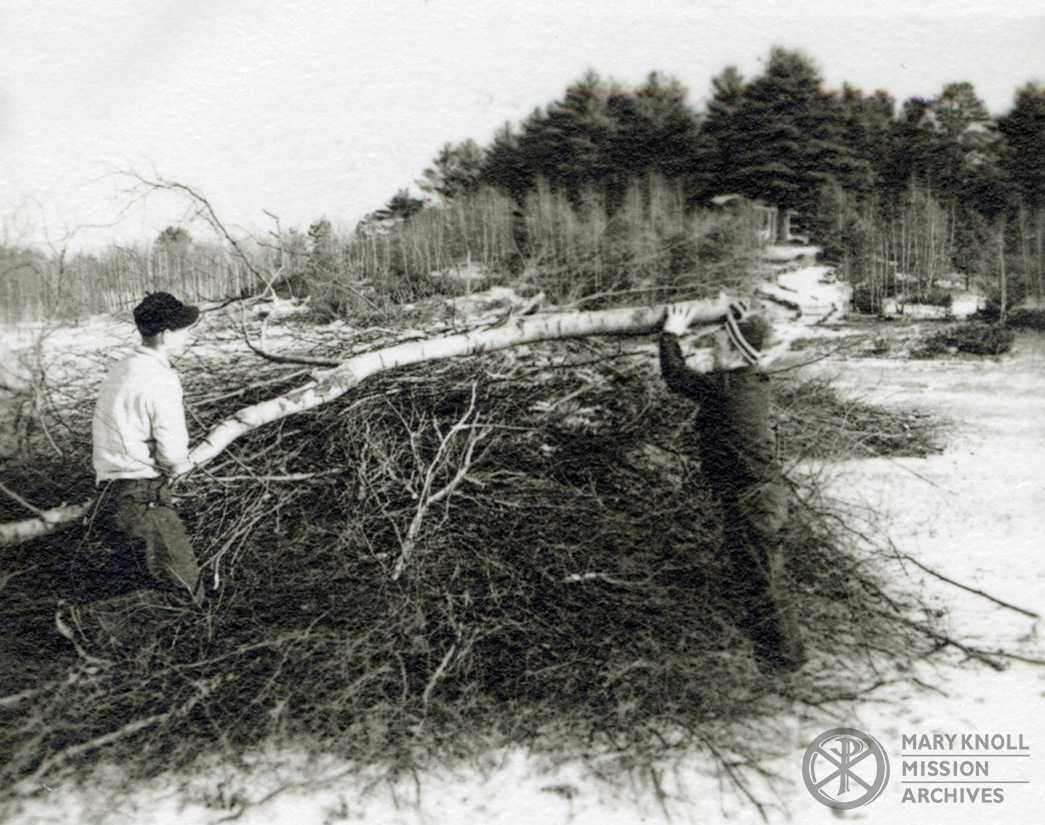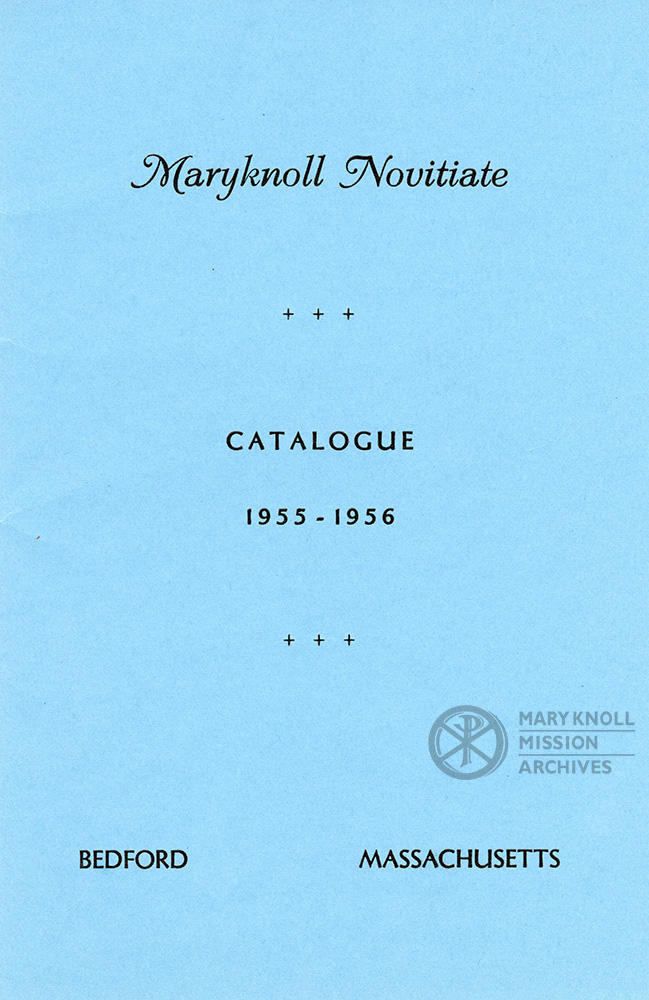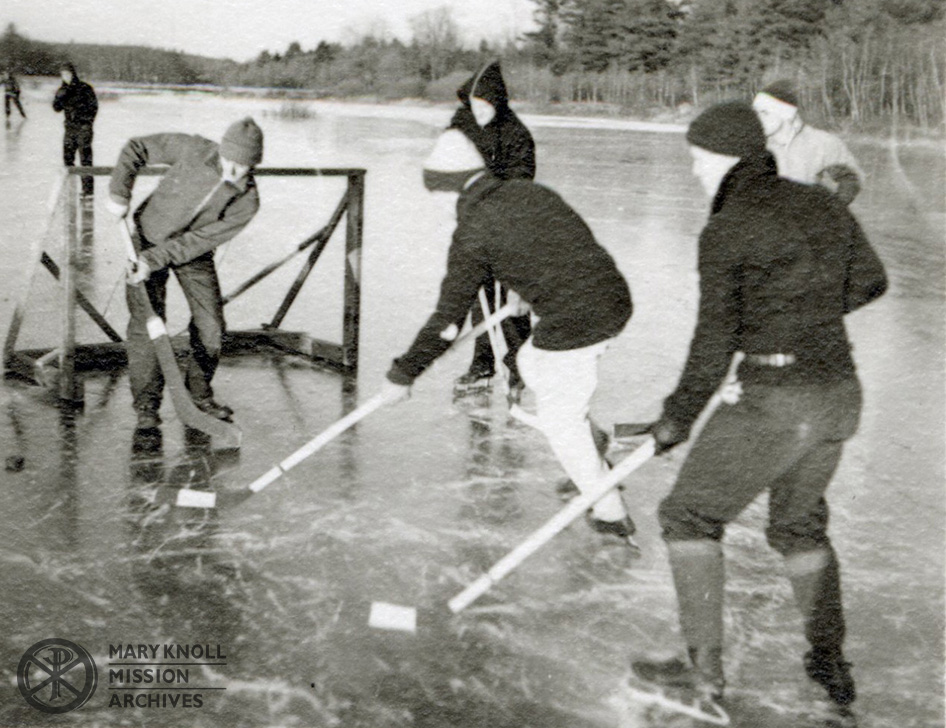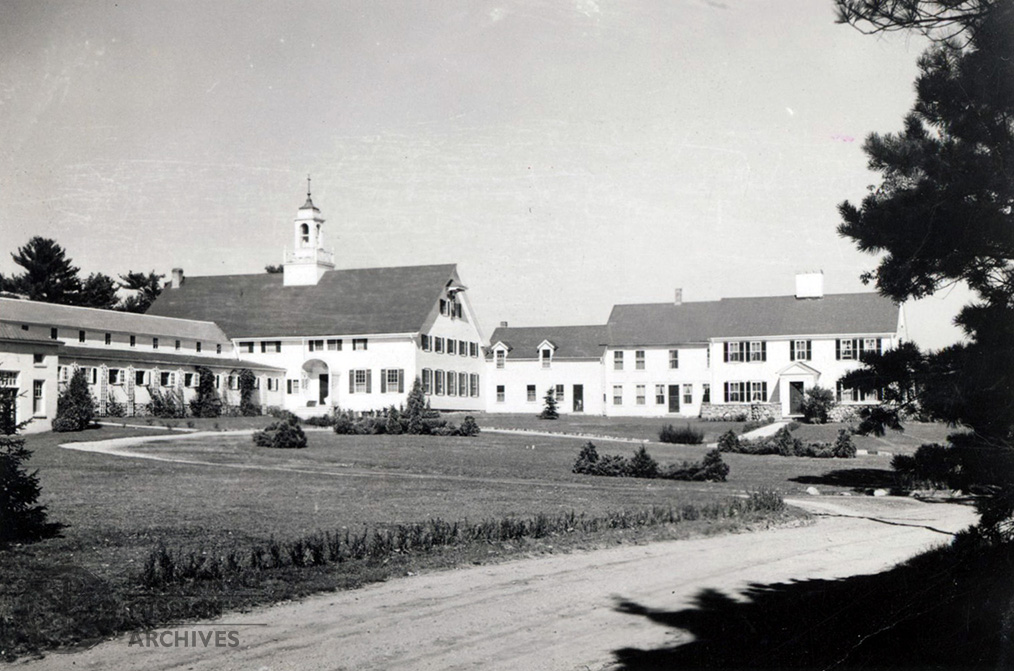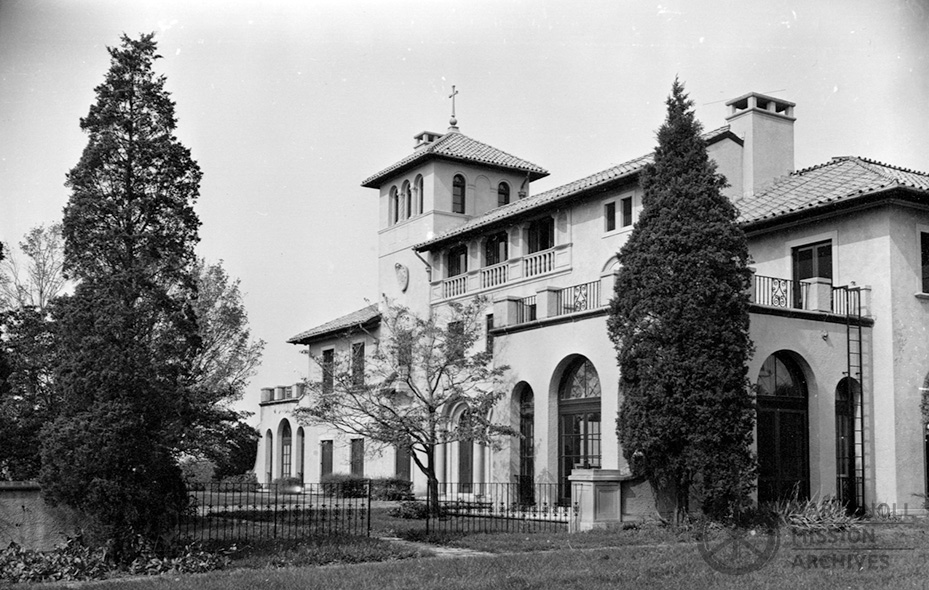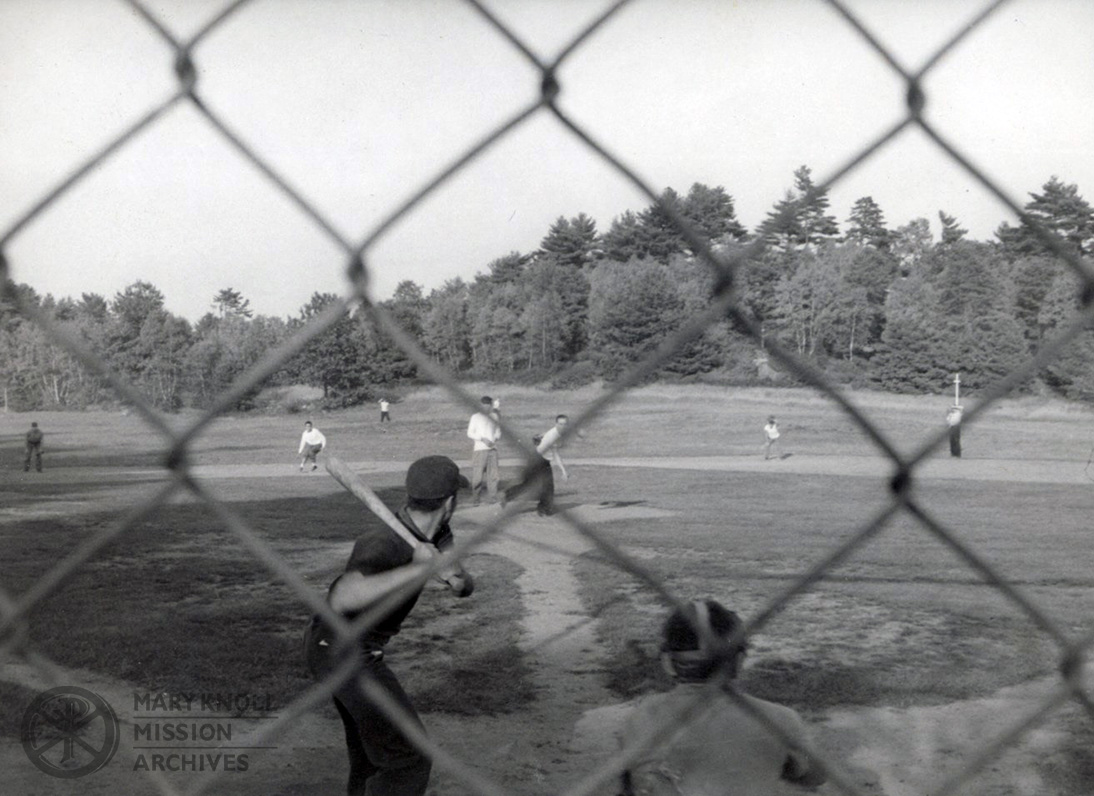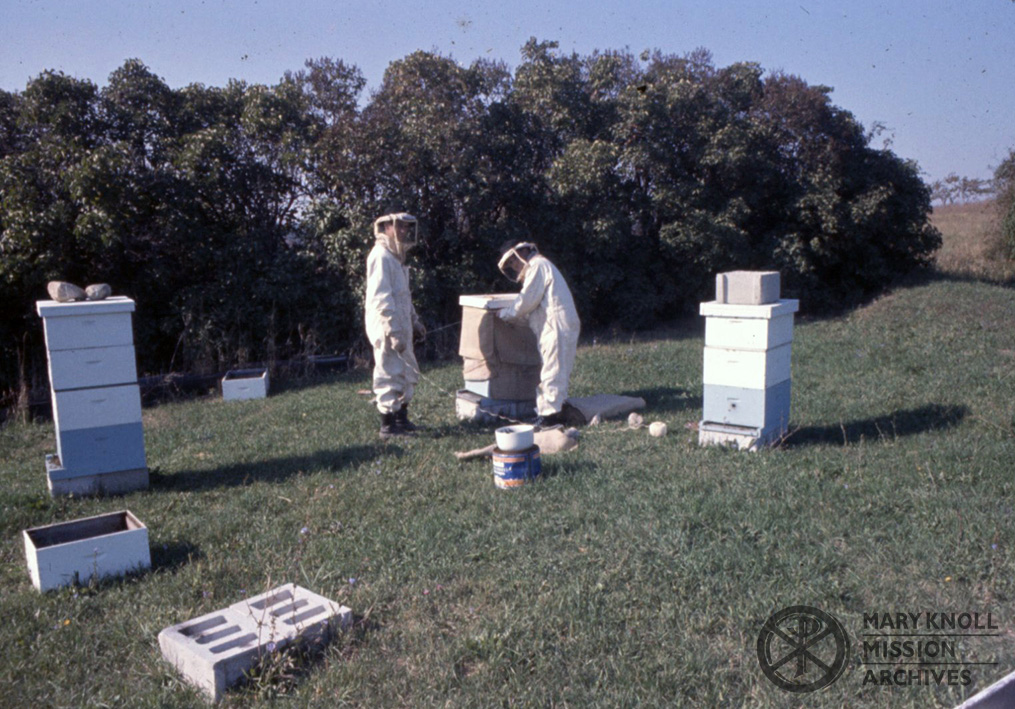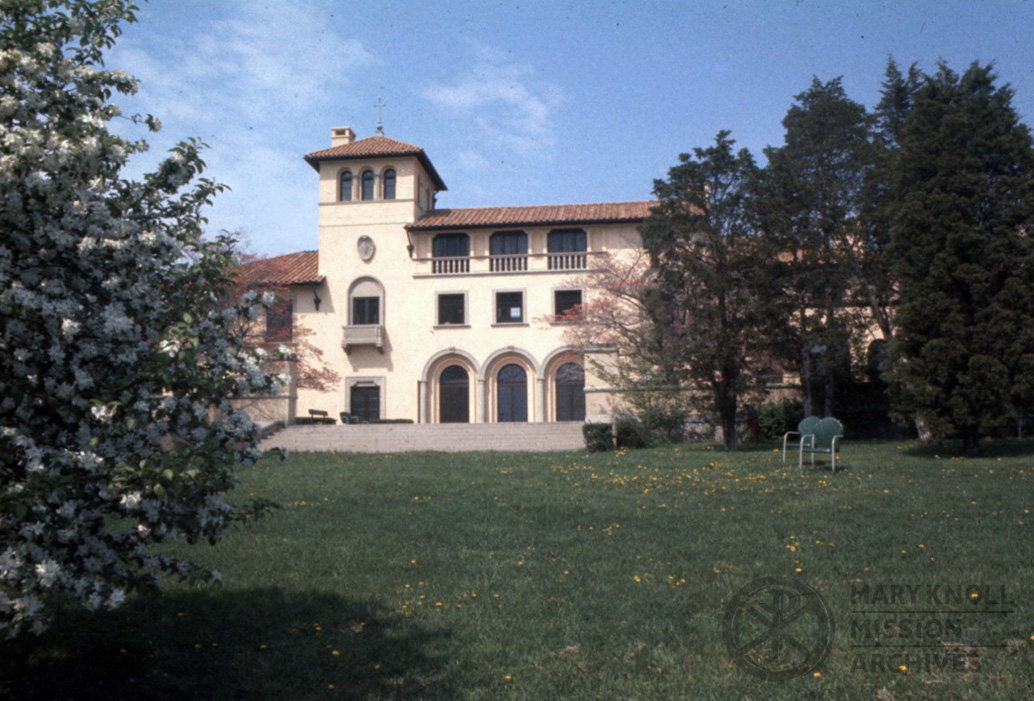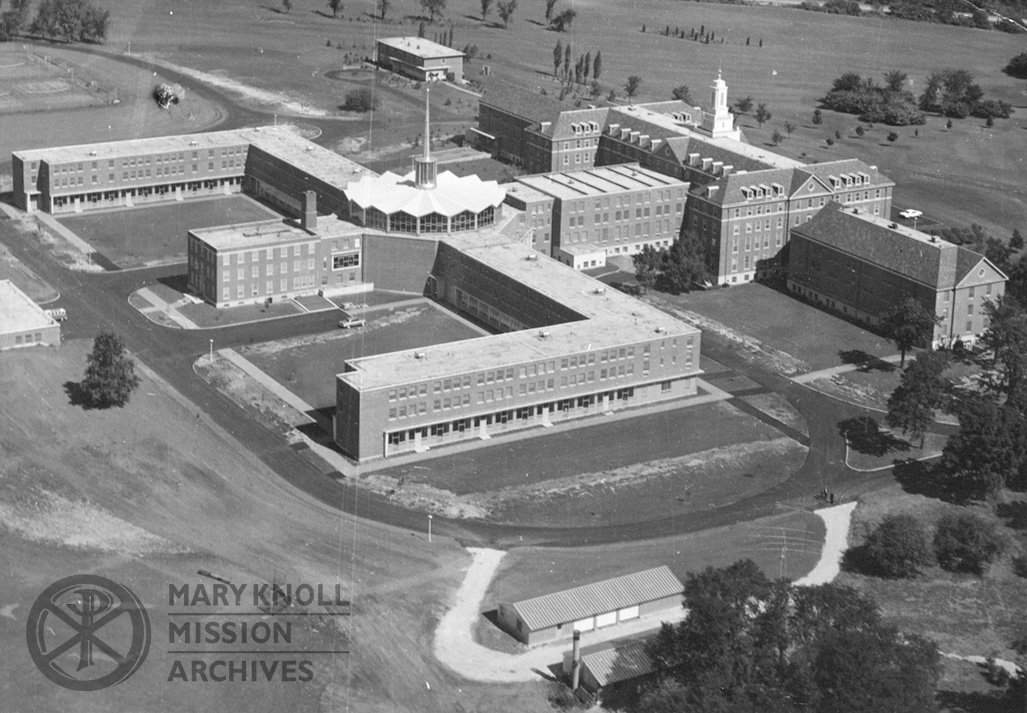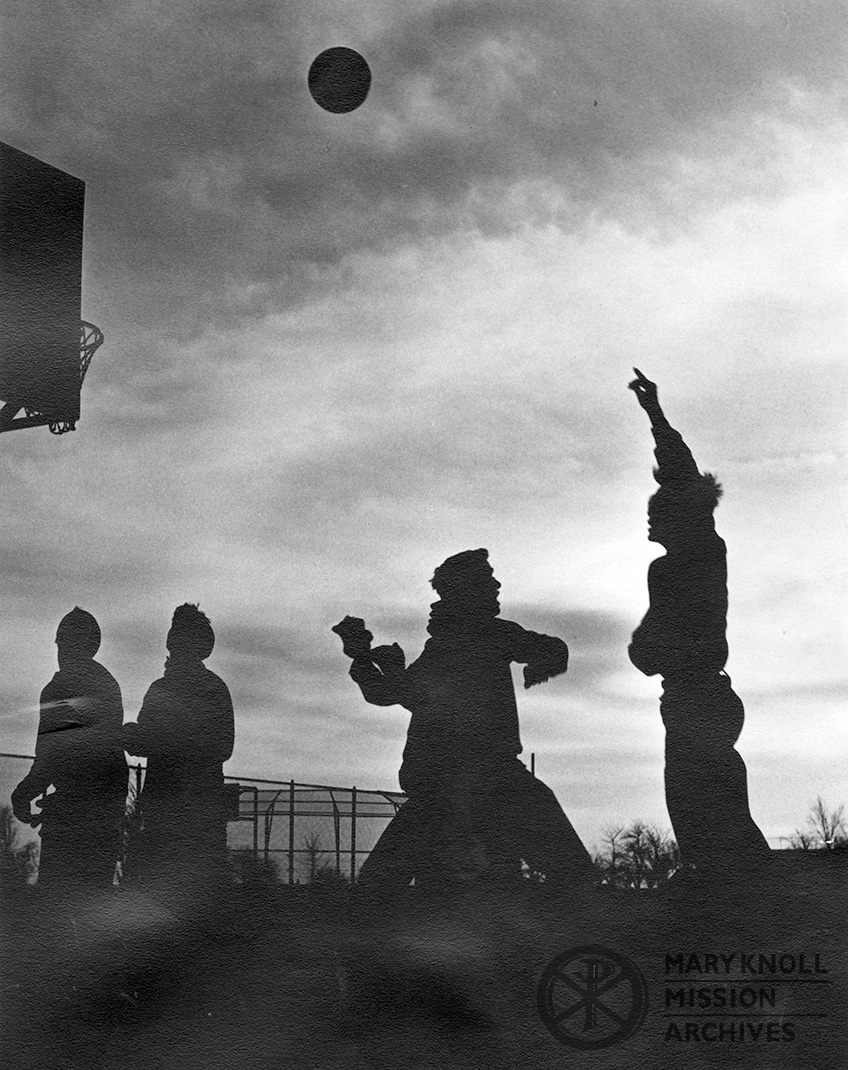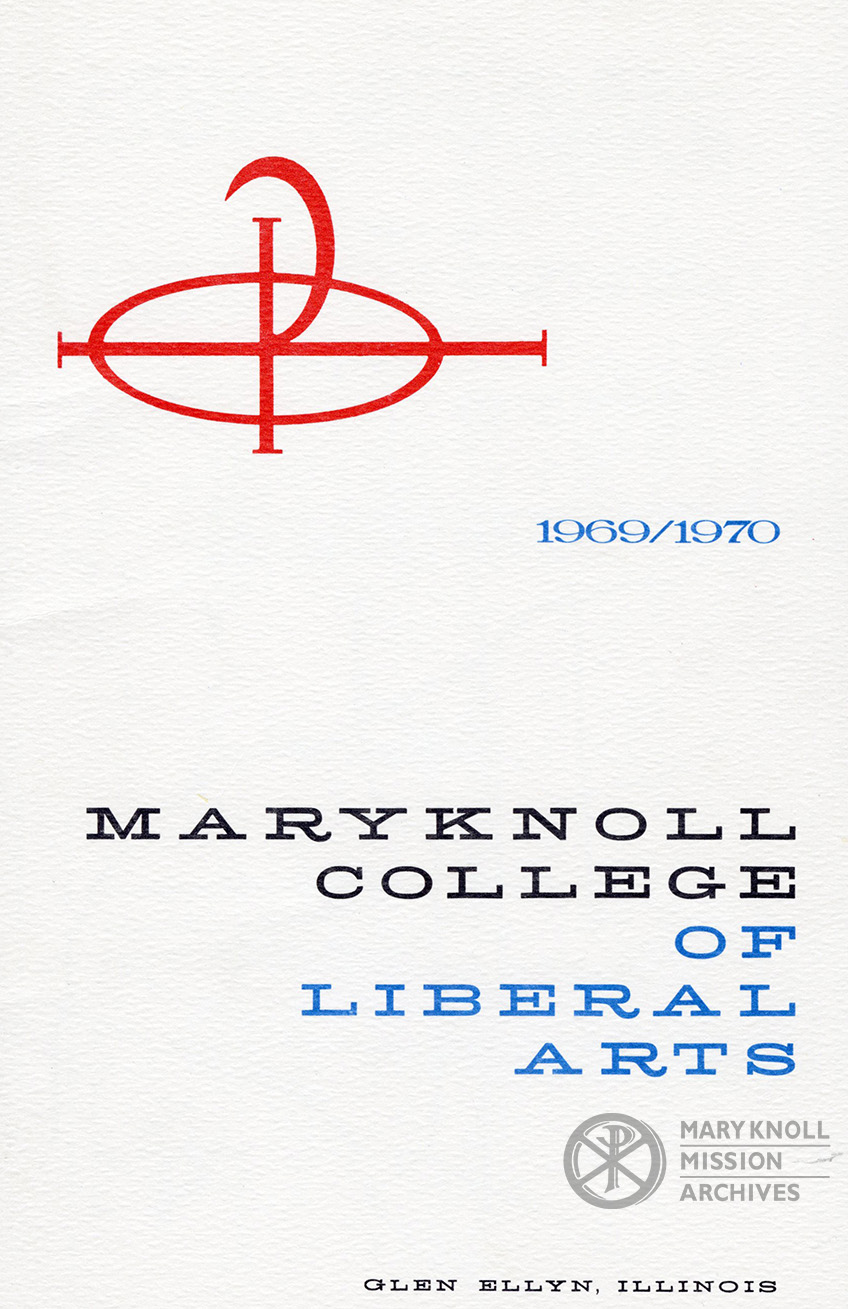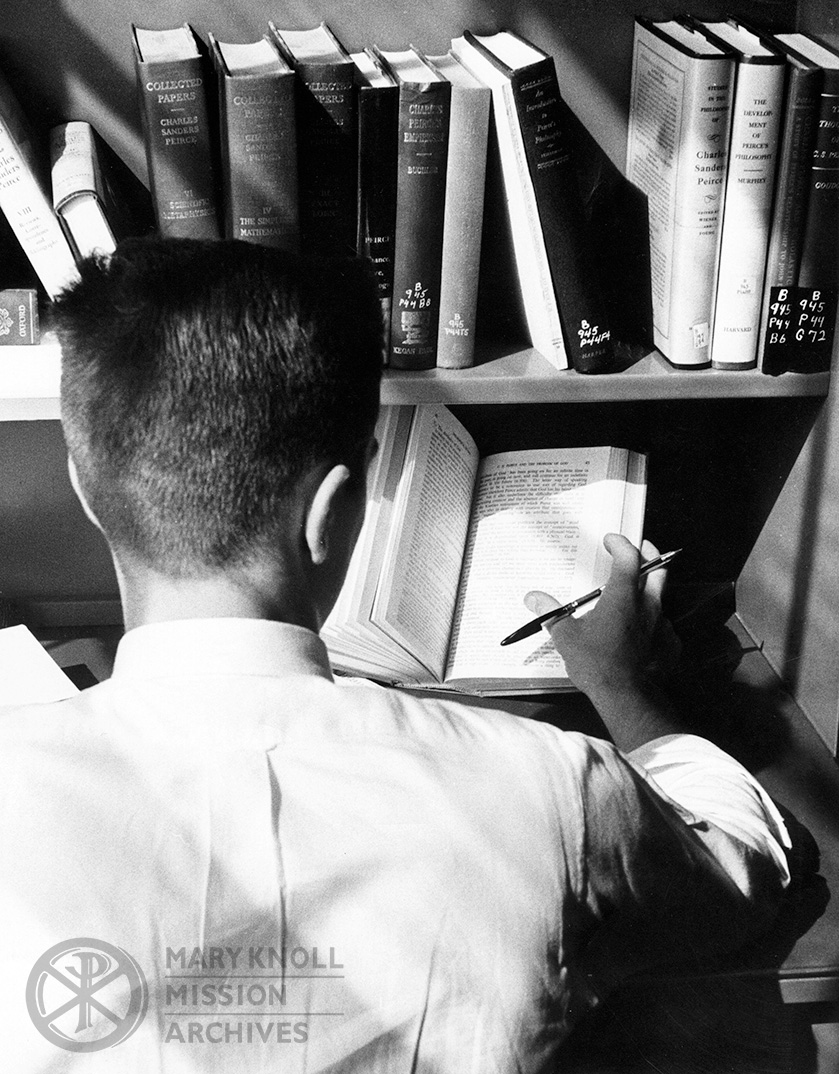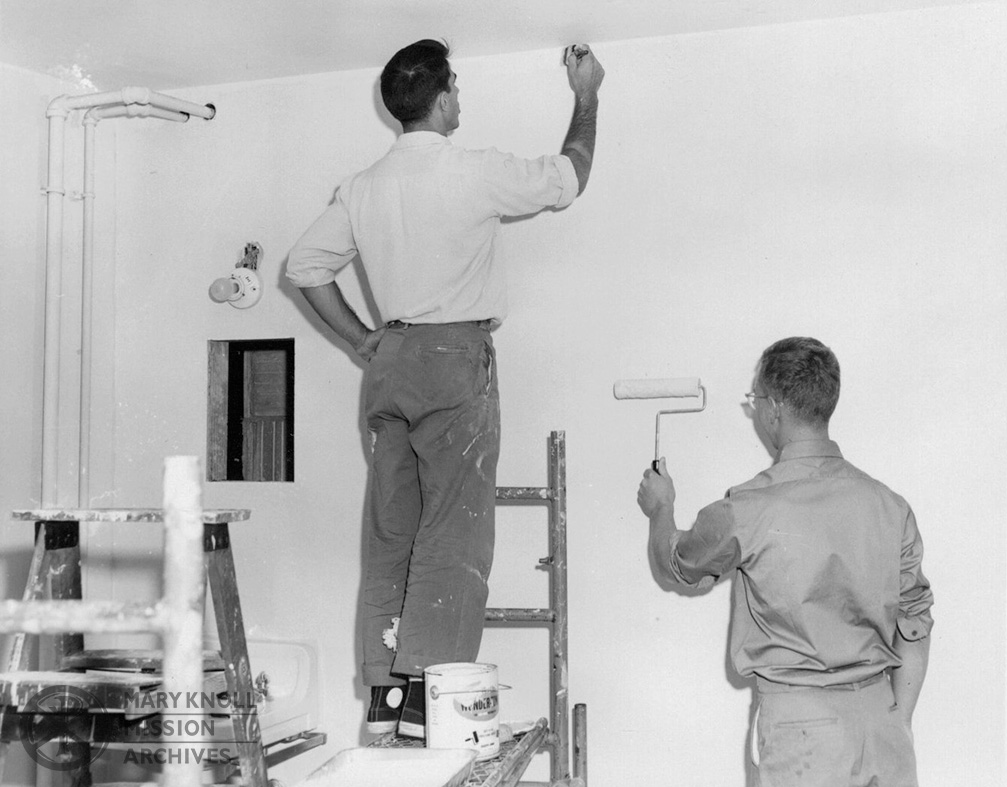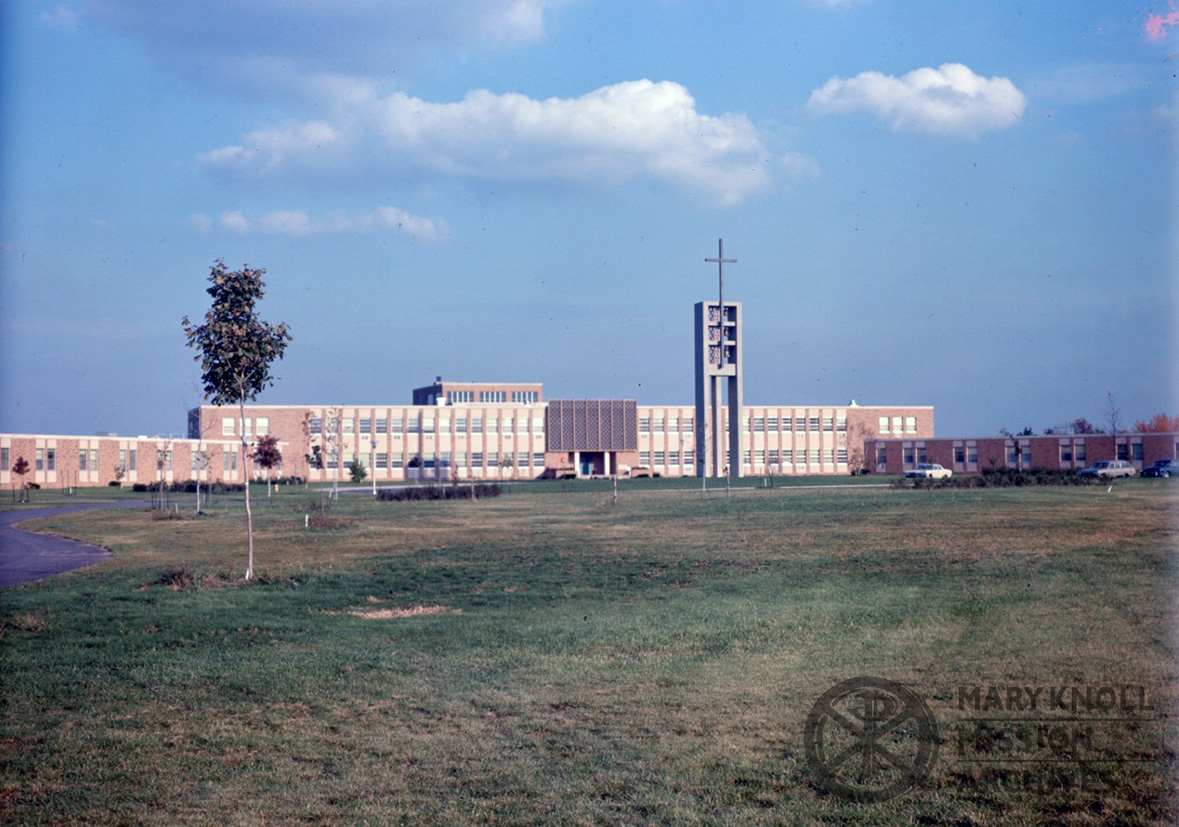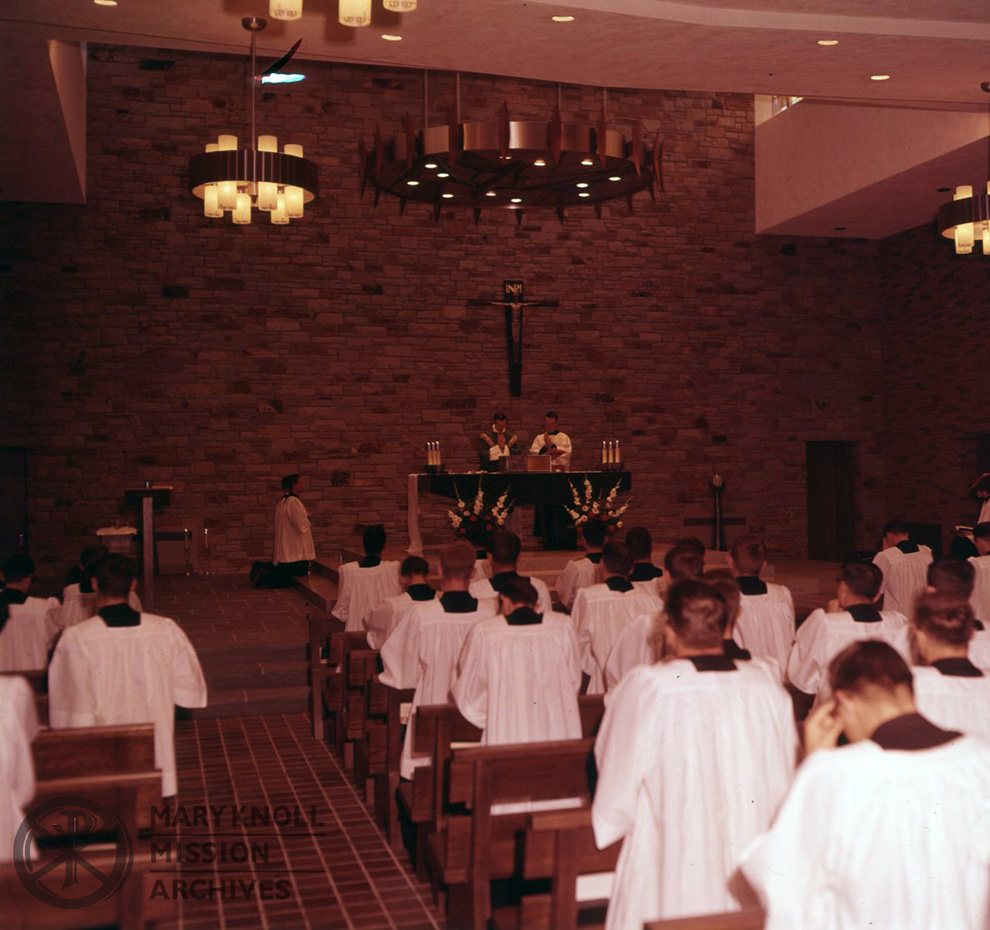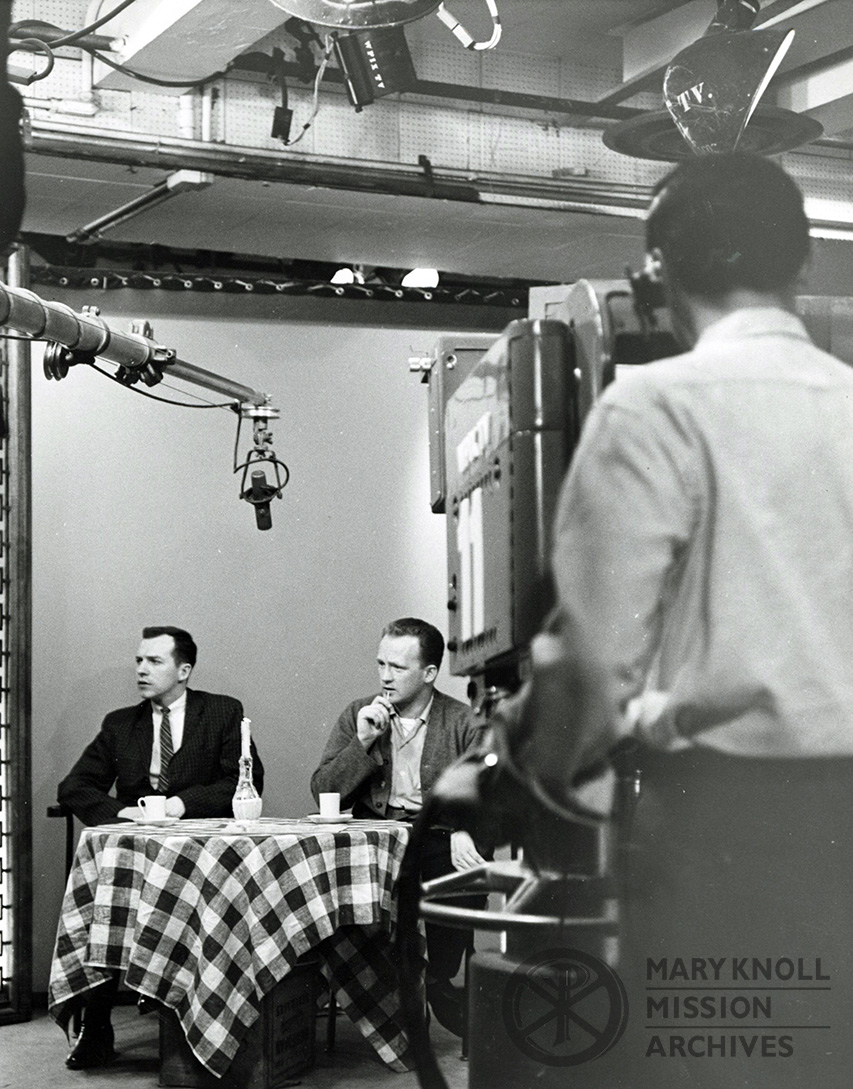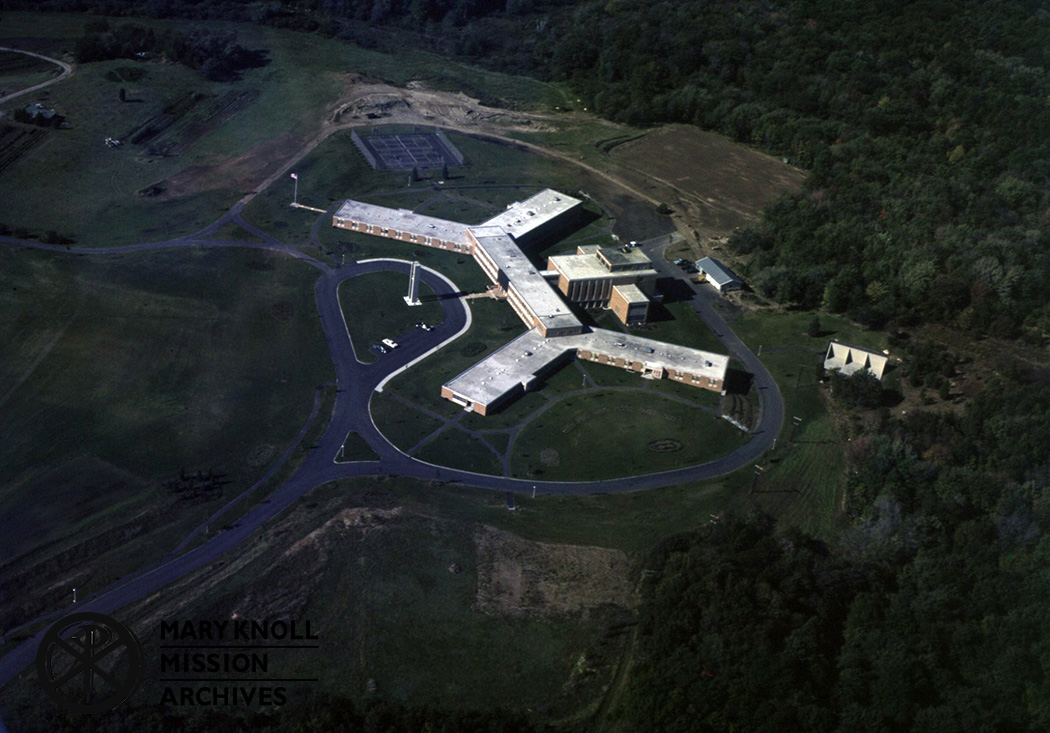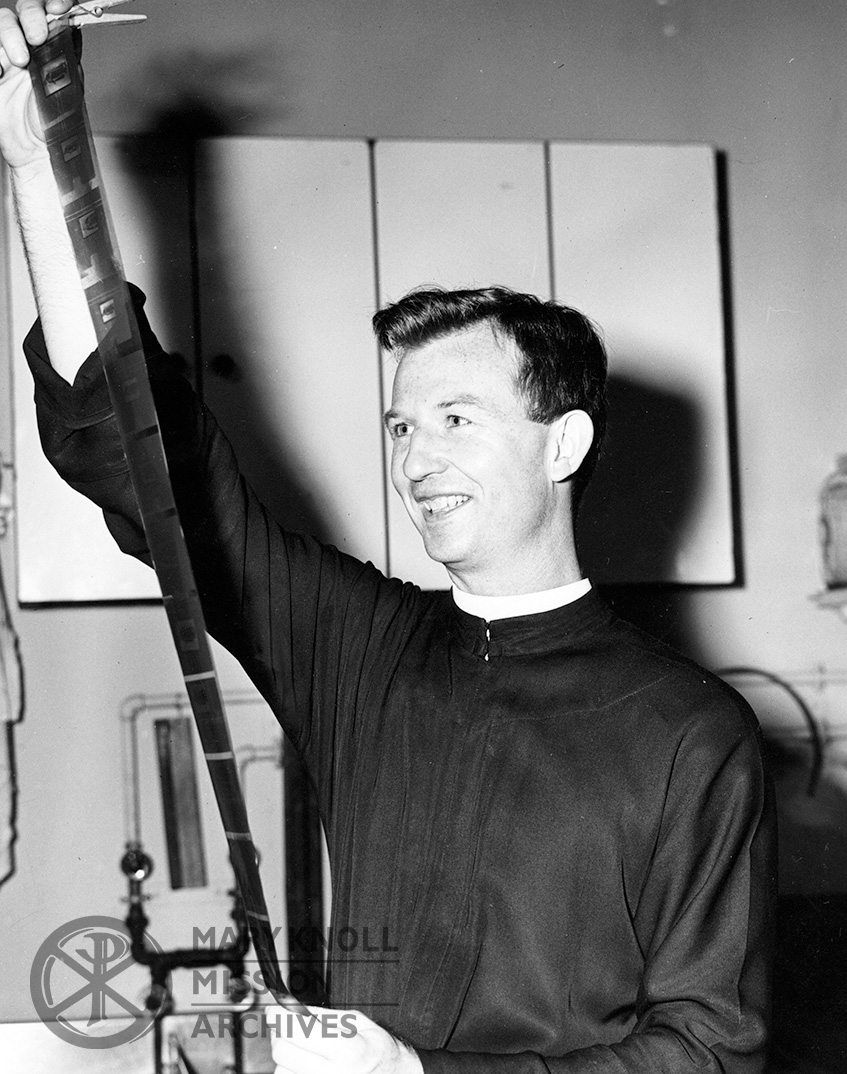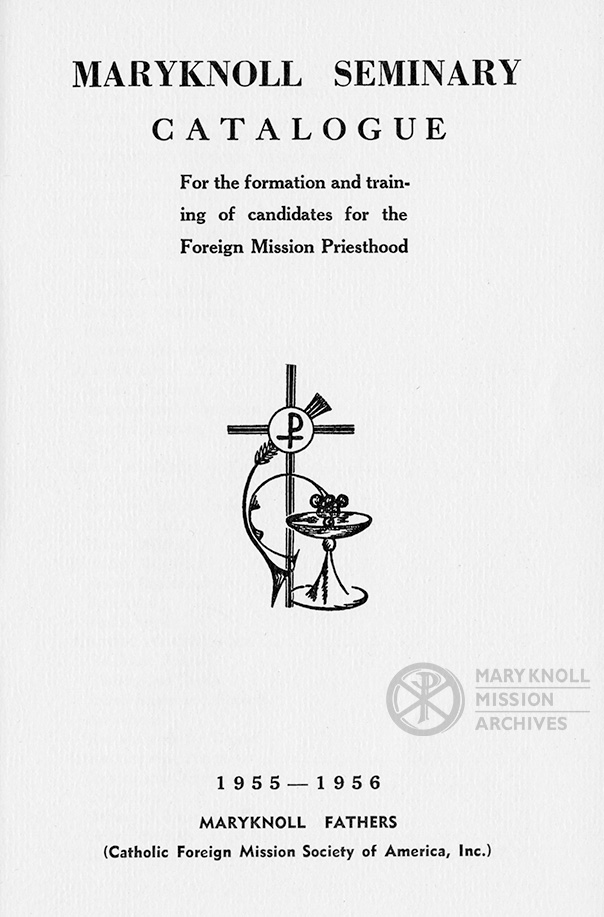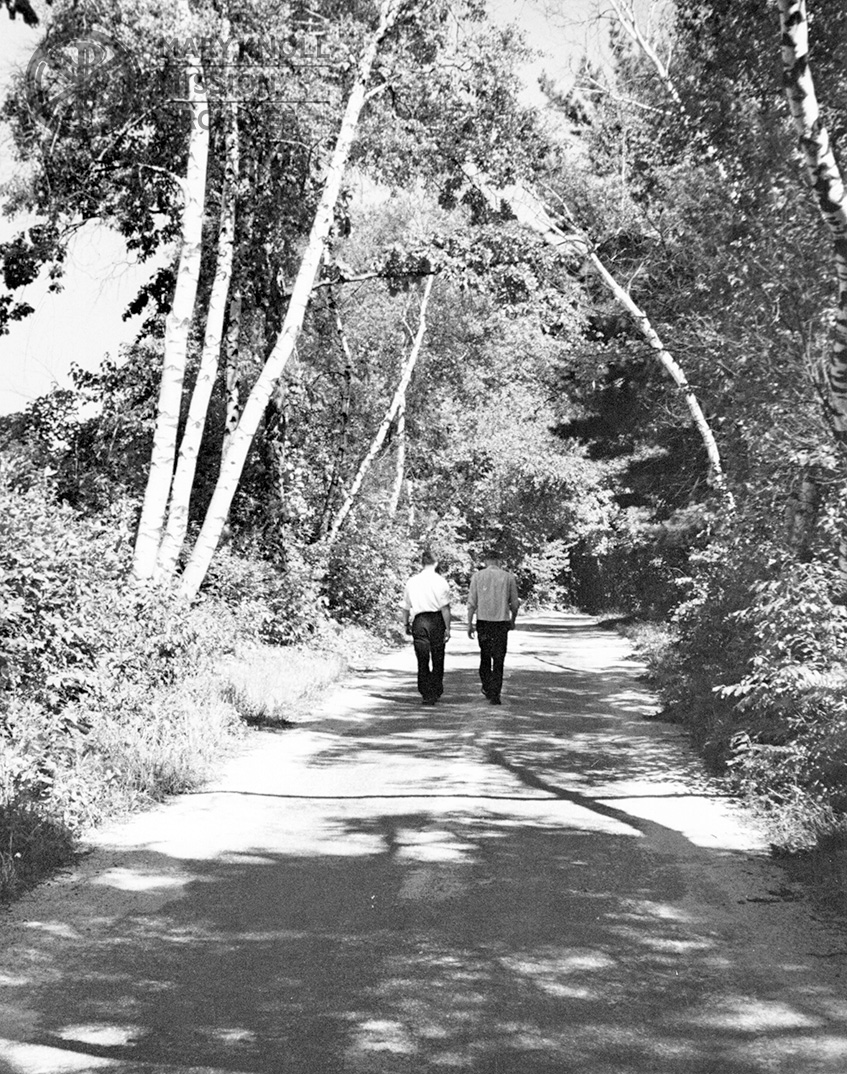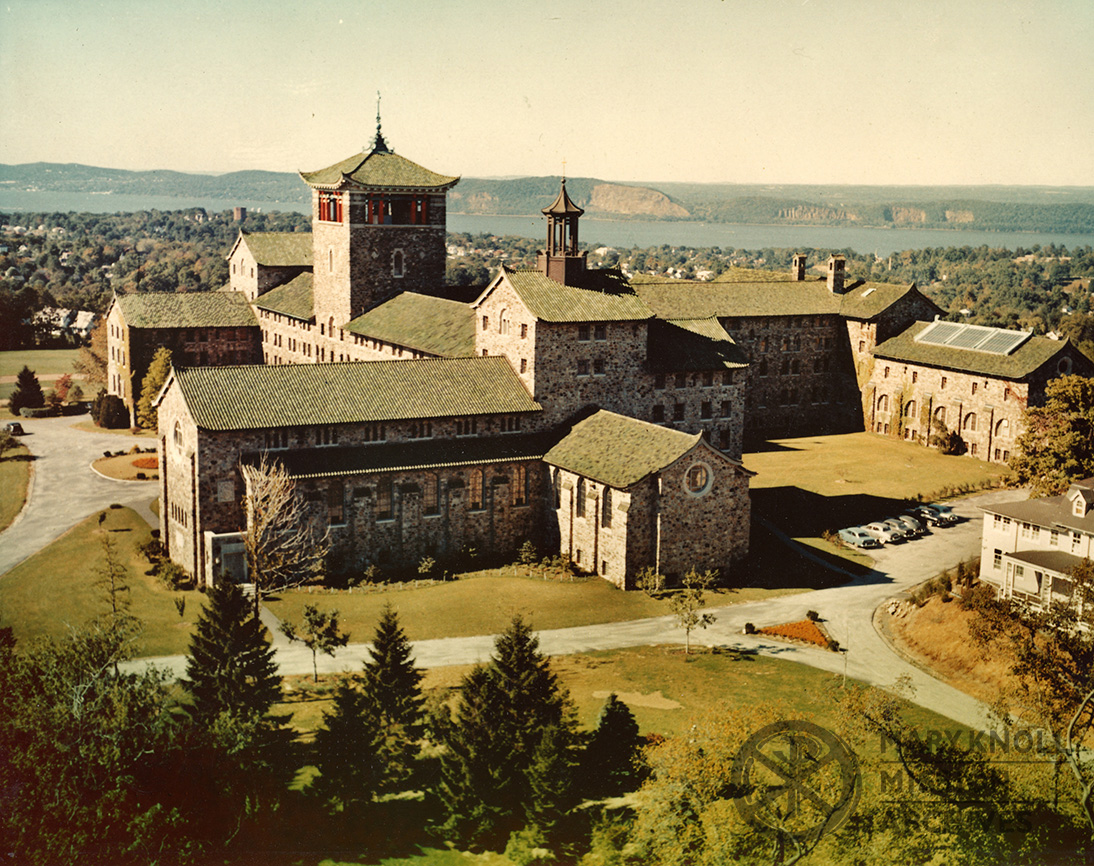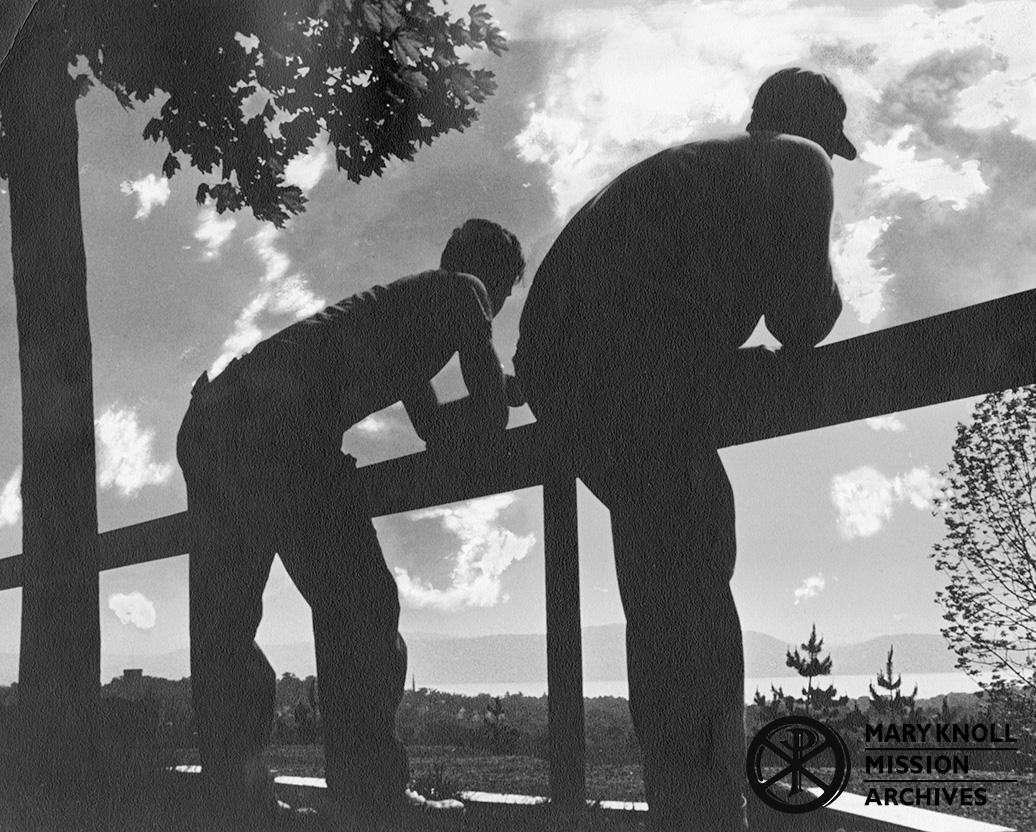While looking at the July 1955 issue of Maryknoll: The Field Afar, I came across an article titled “A Quick Trip Around the Bases”. It mentioned how “[y]ears ago the pages of this magazine were filled with the doings at the various Maryknoll training houses around the country.” However, with the expansion and development of Maryknoll’s mission work, there was barely enough room to tell the stories from abroad, let alone to focus on the happenings within the Maryknoll houses at home. So they decided that “[t]his month, through the medium of the camera,” they would “have a quick tour for [their] readers to some of Maryknoll’s training houses.” Upon reading this article, I realized that we have never highlighted any of the Maryknoll houses at home in our blog. So, without further ado, let’s take a quick trip to Bedford, Brookline, Glen Ellyn, Hingham, and the Major Seminary.
Bedford
Bedford, Massachusetts, Priests Novitiate 1933-1964: Candidate Priests who had completed their college courses attended the Bedford Novitiate for one year before taking their first oaths and attending the Major Seminary.
“This special year in the training of Maryknoll Missioners has for its aim and purpose the strengthening and development of the moral and spiritual life of the aspirant to the missionary priesthood. Maryknoll exists to prepare young men for the foreign service of the Catholic Church. […] The aspirant accordingly is trained in the arts and sciences prescribed by the Holy See, the Third Plenary Council of Baltimore, and the Council of Trent. The Novitiate Year specializes in training the Novice in the science of Ascetical Theology and the applied arts. The Novice is given every opportunity to develop the initiative, dependability, and adaptability so essentially a part of the apostolic character.”
~ Bedford, MA – Catalogue 1955-1956, Aims and Purposes
Brookline
Brookline, Massachusetts, Brothers Novitiate 1951-1967: Brookline was rededicated as the Brothers Novitiate in 1951. Candidate Brothers who had completed their postulancy period attended the novitiate for one year before taking their oaths.
“The Auxiliary Brothers are to […] work both in the houses of the Society in America and in the missions. They give their labors for the temporal needs of the Society as religious teachers, or in the fulfillment of any other offices entrusted to them. […] In addition to this two years of training, Brothers pursue further training in houses of the Maryknoll community around the United States; some of them will be selected for more specialized training in office management, electricity, agriculture, engineering, fields of construction, heating, automotive mechanics, etc., depending upon opportunities and individual[s.]”
~ Brookline, MA – Catalogue Maryknoll Brothers’ Novitiate 1962-1963
Glen Ellyn
Maryknoll began exploring the possibility of opening a college in the Midwest in 1942. […]The new college would [serve] students living west of Ohio and be located within 50 miles of Chicago. After exploring several options, the Society chose to purchase the Glenbard Golf Club in Glen Ellyn IL in 1944. After construction delays, classes began at Maryknoll College, Glen Ellyn in November 1949.
Glen Ellyn provided either all four years or the final two years of college education to all Maryknoll candidates, leading to a degree in preparation for the priesthood. It covered topics typical to university education such as English, mathematics, and the sciences, and topics specialized for the priesthood such as theology, sacred music, philosophy, and Latin. After their time at Glen Ellyn, candidates attended the Novitiate.
“As a seminary Maryknoll’s principal purpose is to create the necessary social and physical conditions for growth in holiness and to provide other means for the development of a Christlike personality according to the traditions and norms of the Catholic Church and of Maryknoll. This aim may be designated as moral and spiritual training. As a college it has been founded for the cultivation of the intellect by the teaching of the speculative and practical disciplines of a liberal arts program.
Its curriculum has been designed to develop those habits of mind known from the time of Aristotle as understanding, wisdom, science, art, and prudence. The two aims of seminary and college are distinct but complementary. Both coalesce to form the educational program of a Maryknoll Missioner on the college level.”
~ Glen Ellyn, Illinois – Catalogue 1955-1956, Aims and Purposes
Hingham
Hingham, Massachusetts, Priests Novitiate 1964-1981: The Priests Novitiate moved from Bedford to Hingham in 1964. Candidate Priests who had completed their college courses attended Hingham for one year before taking their first oaths and attending the Major Seminary.
“This program seeks to help you realize the purpose of this special year. Your goals during this ten-month period are: growth in Faith, a deepened understanding of the priesthood, a clearer awareness of the structure of the Society which you wish to enter, and an adequate personal development in the light of these goals.
The daily schedule embodies the general principles which constitute this Seminary’s rationale: liturgy, reflection, study, and a framework for living with and for others.”
~ Hingham, Massachusetts – Seminary Program, 1967-1968
“The one-year program initiates each seminarian into a training period with emphasis on personal development and spiritual growth that leads to ordination. Here he is given a chance to gain a clearer idea of his own identity, his relationship with others and his identity as a Maryknoll missioner.
The student chooses a mission area for deep study. Various seminars are presented during the year by missioners from different countries. Courses in theology and Scripture offer a deeper insight into the Faith. Liturgy and community prayer are a significant part of the year. At Hingham, the student clarifies and deepens his vocational decision.”
~ “Orientation for mission” by Morgan J. Vittengl – Maryknoll Magazine, October 1977, p. 16
Major Seminary
The Major Seminary in Maryknoll, New York was founded in 1917 by Frs. James A. Walsh and Thomas F. Price. They believed that the establishment of a seminary devoted to preparation for foreign mission activity was the first step toward a thriving Society. After completing their high school and undergraduate educations and a novitiate period, candidates for the priesthood attended four years of theological education at the Major Seminary. At the end of this period, they were ordained and assigned to their mission.
“All candidates take their final four years of work at Maryknoll Major Seminary, Maryknoll, New York. Here they receive minor and major orders while studying Theology, Scripture, Liturgy, Church History and Missiology as the last stage of their preparation for the priesthood. […]In the formation of a priestly character, the Society is bound to provide a training which, according to the prescription of the Holy See, will enable the student to develop his vocation and acquire the knowledge and the virtues which will qualify him for the reception of Holy Orders. Further, with the help of God’s grace, Maryknoll strives to help each candidate develop in his personality qualities of generosity, loyalty, and obedience, as well as initiative, leadership and enthusiasm. The final aim is to ordain a priest who will possess sympathy for his people, a readiness to forget himself in helping them, courage in the face of obstacles, humility in success and confidence in spite of apparent failure.”
~ A Visit to Maryknoll, p.60 & 65
Please note that all of the initial descriptions for each location were taken from the Biographical/Historical Notes of the finding aids for the Glen Ellyn College, Novitiate Houses, and Maryknoll Major Seminary Collections written by Kathryn Spicer. I hope that you have enjoyed this quick trip!

